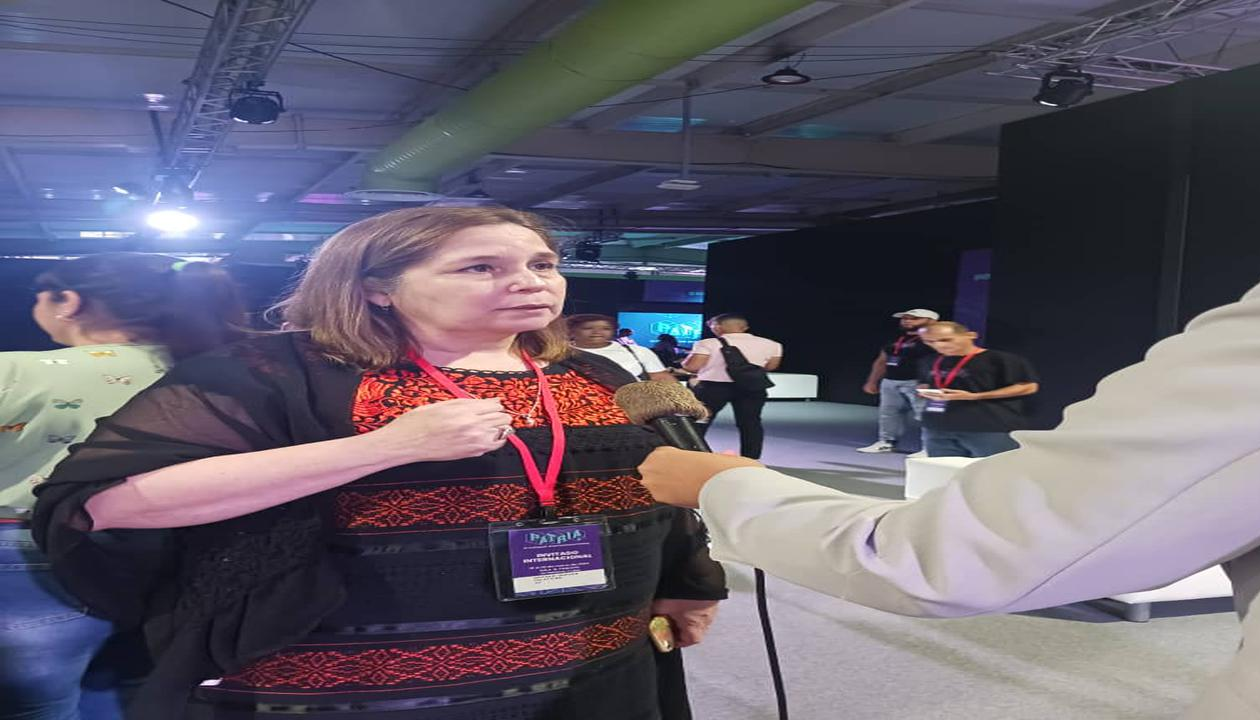
Rosa Miriam Elizalde, president of the Organizing Committee of the III International Colloquium Patria, which is being held at the Pabexpo Fairgrounds, gives an exclusive interview to Radio Habana Cuba.
RHC: What is your assessment since the first Coloquio Patria was held until this one. How has it evolved?
RME: It has taken a giant leap. In the first colloquium we had 18 international guests, in the second 57, and in this one we now have 104 international guests. From one colloquium to another it is very similar because the idea is the same, a holistic view of communication from all the planes that are often excluded. Generally we see communication, especially in our guild, the contents separated from technologies, separated from social practices, and here we are integrating everything.
We have a space where people come to listen to conferences and debates on two very topical issues, and to redesign and update the McBride Report, which in the 1980s was promoted by UNESCO for a new world information and communication order based on the huge asymmetries that people already had in terms of listening to each other. McBride's motto was "One world, multiple voices".
If this was complex before, it is even more so now because we are now very much mediated by technologies that have a direct impact on people's behavior.
That is a big topic that is being discussed here, and a second topic is artificial intelligence, very fashionable, everyone is talking about it, but the issue is how to look at this issue from the South and from a more political and legal dimension.
These are two big issues we are dealing with, but we are trying to promote in Patria a meeting of communicators, of workers in the communities who work in communication, of political leaders also interested in these issues, and of course experts.
But it is not a forum for a professional sect because another of the characteristics of this Patria, unlike the previous ones, is that it is open to the public, to all public including children, because we have an immersive room where there is a sensorial experience, a room for presentations of talks, they are very dynamic, we have the stands.
There is a particularly endearing stand set up by the Lebanese television station Al Mayadeen, where people will be able to have the experience of a bombing in Gaza through virtual reality glasses. Because also one of the central themes of this meeting is to speak loud and clear about our solidarity with the Palestinian people in the face of the genocide that is being committed against them.
I always think that what Palestine is going through may be the extreme version of the blockade, that is, of what is happening to us.
Therefore, it is a space to enjoy communication, to meet, to learn, to make friends, to understand that also an important dimension of politics is aesthetics and of communication is aesthetics. We have made a great effort with many friendly hands that have helped us and have worked for the Homeland without charging a penny, with many hours of effort to have a nice place. A place where people can come, talk, meet, in the midst of many shortages, but good.
RHC: In these times in which we are living, in which once again there has been an attempt to provoke a social explosion in Cuba, how do you value the fact that Patria is happening today, what message would you take to the world?
Patria is saying where the right side of history is. We have here first level authorities of the world in communication, great influencers who are living in practice, are in the street, are getting to know the Cuban people and know that there is tranquility in the country and that what we are suffering has to do with causes that are not attributable to the wishes of the revolutionary government and have to do with the consequences of a horrendous blockade. We also have problems that cannot be attributed to the blockade but the attempt to strangle a people out of hunger and desperation is what we are experiencing. Even so, Cuba continues to be an arena of encounter for many voices that do not even have revolutionary power and that find here, at least, a space to think about how to build a less inhospitable world than the one we are living in.
RHC: Will there be a final declaration?
Yes, there will be a final declaration that we are working on, very brief, where we will put some positions on what this space is for, what we want .....
RHC: So, are you optimistic?
I am very optimistic, always optimistic. Another communication is also possible, even in Cuba.

